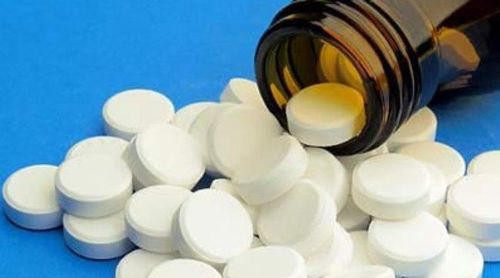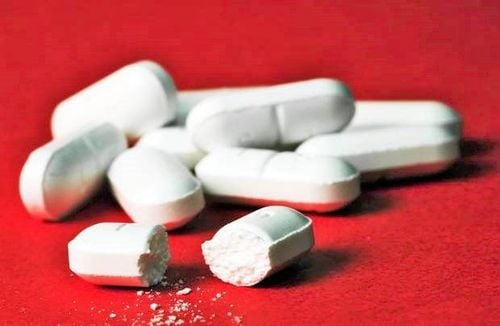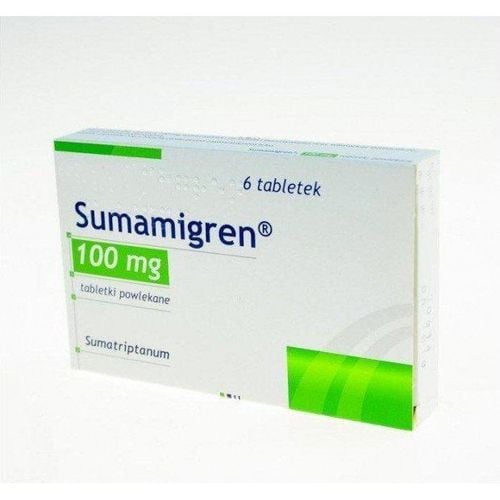This is an automatically translated article.
Ascriptin or Aspirin belongs to the group of non-steroidal anti-inflammatory drugs (NSAIDs) used to reduce pain, anti-inflammatory, and reduce the risk of heart attack in patients with chronic coronary artery disease, angina pectoris. In addition, the drug also works to reduce the risk of stroke and stroke recurrence.
1. What is ascriptin?
What does ascriptin do? Ascriptin is also known as acetylsalicylic acid. This is a pain reliever, hypothermia and anti-inflammatory, anti-platelet aggregation. Like other nonsteroidal anti-inflammatory drugs, Ascriptin also works by inhibiting the COX (cyclooxygenase) enzyme. This leads to inhibition of the synthesis of inflammatory and painful chemicals such as prostaglandins, thromboxane and other metabolic products.
When taken orally, Ascriptin is rapidly absorbed from the gastrointestinal tract. Ascriptin is partially hydrolyzed to salicylates in the intestinal wall. After entering the circulation, the remaining ascriptin is also rapidly converted to salicylates, however in the first 20 minutes after oral administration, ascriptin remains unchanged in plasma. Both Ascriptin and salicylates are active, but only Ascriptin inhibits platelet aggregation. Salicylates are cleared primarily by the liver.
2. Indications for the use of Ascriptin
Ascriptin is indicated in the following cases:
Relief of mild to moderate pain. Acute and chronic inflammation such as: rheumatoid arthritis, inflammation (degeneration) of joints. Ascriptin is used in some cardiovascular diseases such as: angina pectoris, myocardial infarction. In addition, it is also used to prevent cardiovascular complications in patients at high cardiovascular risk. Treatment and prevention of some cerebrovascular diseases such as stroke. Anti-inflammatory, antipyretic and antithrombotic.
3. Contraindications Ascriptin
Ascriptin is contraindicated in the following cases:
Allergy to Ascriptin or allergy to any of the ingredients in the drug. Have asthma symptoms, rhinitis or urticaria when taking aspirin or other non-steroidal anti-inflammatory drugs in the past. A history of asthma when taking medication increases the risk of an asthma attack. Have hemophilia, thrombocytopenia, active gastric or duodenal ulcer. Patients with moderate to severe heart failure, kidney failure, impaired liver function, cirrhosis. Precautions for Ascriptin
Caution should be exercised when co-administering anticoagulants or when there is a risk of other bleeding. Do not combine Ascriptin with non-steroidal anti-inflammatory drugs and glucocorticoids. When treating patients with mild heart failure, kidney disease or liver disease, especially when used concomitantly with diuretics, careful consideration should be given to the risk of fluid retention and the risk of decreased renal function. Ascriptin is not indicated for children under 16 years old (due to Reye's syndrome) except for some cases such as Kawasaki disease, juvenile rheumatoid arthritis, Still's disease. The elderly may be more susceptible to ascriptin toxicity, likely due to decreased kidney function. A lower dose than usual for adults is required.
4. Dosage and how to use Ascriptin
Usage: Because it is prepared in oral form, Ascriptin is used orally. Patients should take the drug after meals (taken on a full stomach) to minimize the risk of gastrointestinal ulcers.
Dosage forms of Ascriptin include:
Tablets: 325 mg, 500 mg, 650 mg. Chewable tablets: 75 mg, 81 mg. Slow-release tablets (enteric-coated tablets): 81 mg, 162 mg, 165 mg, 325 mg, 500 mg, 650 mg, 975 mg. Film-coated tablets: 325 mg, 500 mg. Dosage: depends on the condition of each patient and as prescribed by the doctor. Therefore, patients should not arbitrarily take aspirin.
Adults
Pain relief, fever reducer: Take 300 - 900 mg. Repeat dose every 4-6 hours as needed. Maximum dose: 4g/day. Anti-inflammatory (rheumatoid arthritis, osteoarthritis): Acute inflammation: Can be used at a dose of 4 - 8 g/day, divided into several small doses; Chronic inflammation: Doses up to 5.4g/day, divided into several small doses, are effective. Inhibition of platelet aggregation: Long-term prevention of cardiovascular complications in high-risk patients, using a dose of 75-150 mg/day. In acute cases, it is necessary to use immediately in the initial therapy regimen such as: myocardial infarction, cerebral infarction, unstable angina, using a loading dose of 150-300 mg. Children
Against juvenile rheumatoid arthritis:
Children < 25 kg: Initially use a dose of 60 - 130 mg/kg/day, divided into several small doses (5 - 6 times). Children ≥ 25kg: Can start with a dose of 2.4 - 3.6 g/day. The usual maintenance dose is 80-100 mg/kg/day, some children may need 130 mg/kg/day. However, due to the risk of toxicity, children >25 kg should not receive doses exceeding 100 mg/kg/day. Kawasaki disease:
In the early stage with fever: Average dose is 100 mg/kg/day (80 - 120 mg/kg/day). Divide into 4 times x 14 days or until inflammation is gone. It is necessary to adjust and maintain the concentration of 20 - 30 mg / 100 ml of plasma (treatment regimen in the US). Convalescent phase: Take 3-5 mg/kg/day/time. If there are no coronary artery abnormalities, treatment should usually be continued for a minimum of 8 weeks. If there is an abnormality in the coronary arteries, treatment must be continued for at least 1 year. Even if that abnormality has receded. If abnormalities persist, longer treatment is required.
5. Side effects when using Ascriptin
Common side effects
Gastrointestinal: Nausea, vomiting, dyspepsia, epigastric discomfort, heartburn, stomach pain, peptic ulcer. Central nervous system: Fatigue. Dermatology: Rash, urticaria. Less common: Stevens-Johnson syndrome, Lyell's syndrome, erythema nodosum, erythema multiforme. Hematology: Hemolytic anemia. More rarely Aplastic anemia agranulocytosis, thrombocytopenia. Neuro-muscular and skeletal: Muscle weakness. Respiratory: Difficulty breathing. Other: Anaphylaxis. Uncommon side effects
Central nervous system: Insomnia, restlessness, irritability. Endocrine and metabolic: Iron deficiency. Hematology: Hidden bleeding, prolonged bleeding time, leukopenia, thrombocytopenia, anemia. Liver: Toxic to the liver. Kidney: Decreased kidney function. Respiratory: Bronchospasm. Ascriptin or Aspirin belongs to the group of non-steroidal anti-inflammatory drugs (NSAIDs) used to relieve pain, anti-inflammatory, and reduce the risk of heart attack in patients with chronic coronary artery disease, angina pectoris. In addition, the drug also works to reduce the risk of stroke and stroke recurrence. To ensure the effectiveness of treatment and avoid unwanted side effects, patients need to strictly follow the instructions of the doctor, professional pharmacist.
Follow Vinmec International General Hospital website to get more health, nutrition and beauty information to protect the health of yourself and your loved ones in your family.
Please dial HOTLINE for more information or register for an appointment HERE. Download MyVinmec app to make appointments faster and to manage your bookings easily.
References: drugs.com, holevn.org













